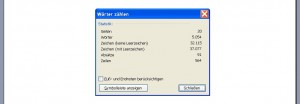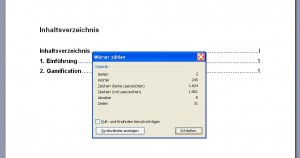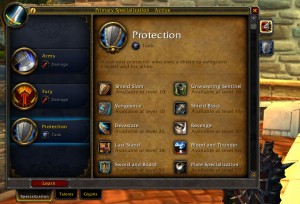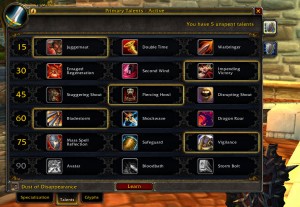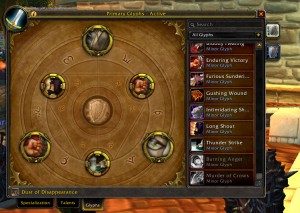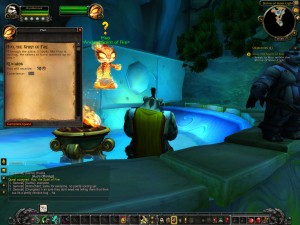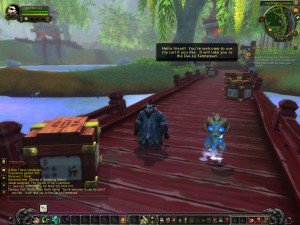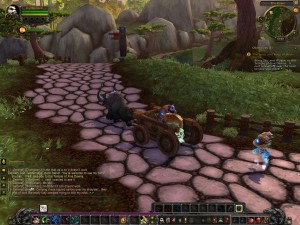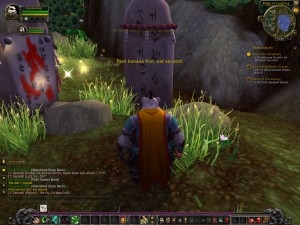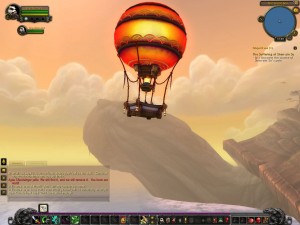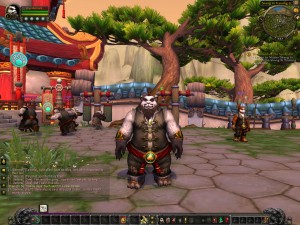This article is mostly based on the management features and options used in World of Warcraft, but the core concepts should be appropriate for any other guild based MMORPG.
Member: World of Warcraft offers a rank based member management. The guild master can create several ranks with different rights. It’s an important decision which rights are assigned to which rank. It’s important as well to decide how many different ranks the guild should have. Fewer ranks gives the members the feeling of being equal and reduce the impression of „important“ guildmates, who have more rights than others in some ways. On the other hand are a lot of ranks useful for a better distinction of the guild members. The final decision should reflect the general orientation of the guild.
In most cases, it comes down to this question: Are all the members equal or should some members – like raid members – have more or other rights than non-raiding members? Some of these decision are based on the decisions made in the raid-management, too. Therefore guild- and the raid-management should match the ranks in the guild with the positions in the raid.
Guild bank: World of Warcraft offers a guild bank, which allows every member to store items and gold. The main purpose of the guild bank is a general storage for the exchange of items among guildmates. The stored gold can be used for repairing or can be spend for crafting materials or something else the whole guild or the raid benefits from. The guild bank privileges can be assigned via the member ranking system as well.
Examples: A guild, which is formed around a raid, has several positions. These positions should be found in the ranking system as well. In this scenario, there should be a leader rank, an officer rank, a regular member rank, maybe a trial rank and maybe a non-raiding member rank.
The raid-leader should have all available rights. The officer rank depends on the duties assigned to this position. Should the officers be allowed to invite or remove members from the guild? World of Warcraft offers also a guild wide officer chat – should only the officers or everybody are able to read this chat? The officer chat might be used for loot distribution discussions if the raid uses a loot council.
The other ranks should be handled the same way. Think wisely about the tasks and the benefits a particular rank should have. This is mostly important by assigning the guild bank access rights. How much gold can a particular rank spend for repairing? Who is allowed to spend the gold for repairing? Who is allowed to take items from the bank?
A „fun“ guild is a little bit more open minded. The members are just playing for fun. In general, all the members are equal. A differentiation like in non-raiding and raiding personal would be disproportionate.
The only important thing for all the member is being in a guild, playing together with other people and have fun. All these member should be equal. In this case, the guild should use only one member rank and maybe an officer rank. The officer should only be used as a deputy guildmaster.
In some ways a trial rank might be appropriate, if all the other member should have a look on the new member, if he/she fits into the guild.
These are only two examples, but every guild is different. It’s important to figure out which system might work for your own guild. The examples should just be seen as some guidelines how a proper guild management can be approached.
Guild-management: Basics – Roundup
For guild master there are two main features to handle: The ranking system and the guild bank. The ranking system is used to manage the members by giving them some privileges in the guild and access to the guild bank. The guild bank is used for item and gold exchange among the guild members. The access level of the guild bank can be managed via the ranking system as well.
In general, I also like to answer user – in this case your (!) – questions. So, if you’ve a question about the whole topic of raid-management, just write me an e-mail (questions[at]learning-by-gaming.net) and I’ll do my very best to answer them.
